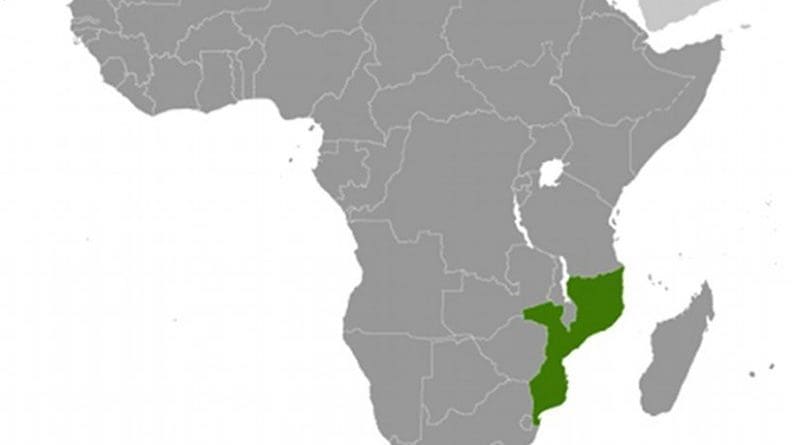Will Natural Gas Be A Blessing Or Curse For Mozambique? – OpEd
As Mozambique prepares to reap the windfall from a mammoth natural gas discovery off its coast, a resurgent armed conflict and the menace of piracy threaten to undermine the coming bonanza. In what could be an economic game-changer for Mozambique, one of the world’s poorest countries, 160 trillion cubic feet of liquid natural gas were discovered in 2010 in the waters of the Indian Ocean, off the East African country’s coastline. Like wildebeest to a watering hole, the world’s energy companies have come stampeding in to stake their claim to the bounty that promises to transform Mozambique into a global exporter of LNG and grow its economy by orders of magnitude.
Consortia have been formed and major projects have been mooted. One of which is slated to become one of the biggest LNG projects in the world. Involving two consortia, one led by Italy’s Eni and the other by US-based Anadarko, it would see the construction of an onshore LNG plant for exporting 50 million tonnes per year primarily to the Asian market. Although gas prices have fallen from $20 per million British thermal units (mbtu) at the beginning of 2014 to around $4.50 today, making ventures less profitable in the short term, most of the projects aren’t due to be operational until after 2020 by which time it is hoped that prices will have recovered significantly. One thing that Mozambique can count on is the demand for its gas, especially among its closest neighbours in energy starved eastern and southern Africa.
In an effort to meet some of that demand, plans are afoot to build a 2,600 kilometre pipeline to South Africa, which is desperately trying to diversify and increase its energy production after a year in which regular blackouts have taken its toll on the economy. With so much riding on the successful exploitation of its newfound resource wealth, the challenge for Mozambique is going to be in maintaining political stability in the face of mounting security concerns. The most troubling news to emerge on this front has been the recent spate of clashes between government troops and the militant wing of the Renamo party. Since the two sides signed a peace treaty in 1992 to bring a thirty-year civil war to an end, Renamo has participated in elections, while retaining the right to maintain a force of 300 men as a private armed guard for the party’s leader Afonso Dhlakama. It is thought that this private army has swelled in numbers as former fighters, accusing the government of failing to integrate them into post-war civilian life, have chosen to take up arms again.
The government, however, blame Renamo for instigating the clashes in the central and north-eastern parts of the country that has killed hundreds and sent 8,000 Mozambicans fleeing into neighbouring Malawi, raising fears that up to 30,000 more could follow, resulting in regional instability. According to Human Rights Watch, Renamo have been conducting raids on hospitals where they make off with mosquito nets, medicine and bedding. The worrying conclusion to be drawn from these reports is that Renamo are digging in their heels and expecting further bloodshed. Political negotiations hoped to bring about a cease-fire look to have come to a dead end, after the government rubbished claims that it had offered Renamo the governorship of the six of Mozambique’s 12 provinces where Renamo topped the polls in the 2014 elections. Talks are due to resume later this month and could well determine whether Mozambique remains on the path of peace and, with its new found gas deposits, prosperity, or if the embers of civil war will be stoked into a new conflagration.
Besides the nightmarish prospect of civil war, there is another enormous challenge to be overcome if Mozambique is to get the utmost benefit out of its gas deposits: it badly needs to secure its territorial waters against piracy. To date, this has presented itself in the form of foreign fishing boats, often Chinese, entering Mozambique’s waters and pilfering its fish stocks to the tune of about $35 million every year. This is in a country where 34% of households are food insecure and 50% of the population depends on fish for proteins. The purchase of several patrol boats from a French shipbuilding company through the EMATUM government agency is intended to beef up Mozambique’s maritime defences and counter the scourge of illegal trawlers off its coast.
However, now that Mozambique’s waters are known to contain something much more valuable than fish, piracy takes on a whole new dimension. Pirates operating off the coast of Somalia, to the north of Mozambique, were only defeated thanks to unprecedented levels of international cooperation to protect oil tankers passing through the Gulf of Aden. Nigeria too knows the damage that can be done by armed militants intent on sabotaging its oil facilities. As present it’s uncertain which way things in Mozambique are going to go and whether its gas find will turn out to be a curse or a blessing.
About the author:
*Originally from London, James Lessons recently graduated from the University of Exeter with a degree in politics and international relations with a particular focus on the African region. He is currently working as a freelance research assistant and writer for a small economic risk consultancy.

